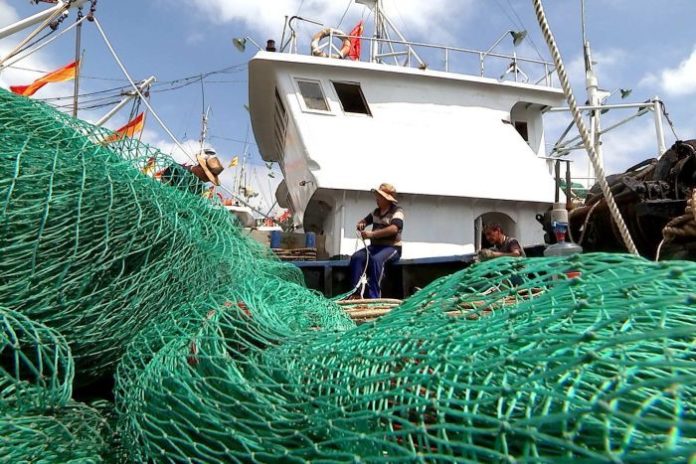China is certainly not the only country with predatory fishing fleets, but its boats are the ones that have been invited into our territorial waters by a foreign power.
An oasis of stability in a volatile region, Somaliland has long safeguarded our maritime zones from piracy, terrorism and crime, including illegal fishing. Thanks to the responsible stewardship of our coastal ecosystem, Somaliland’s territorial waters are home to hundreds of fish species. For this reason, conservationists and diplomats alike should be alarmed by neighboring Somalia’s recent decision to grant licenses to Chinese companies to fish in Somaliland territorial waters. Unless the international community intervenes, 850 kilometers of Somaliland’s coastline and 70,000 square kilometers of its exclusive economic zone will soon become vulnerable to exploitation by foreign commercial entities, putting at risk yet another fragile coastal ecosystem in Africa. 
Somaliland and Somalia have a long and complicated history. A former British protectorate, Somaliland secured its independence from the United Kingdom in 1960 and was subsequently recognized by numerous governments, including the United States. Shortly thereafter, Somaliland voluntarily joined with the former Italian Somalia to create the Somali Republic, which over time became subject to autocratic rule and civil conflict. In 1991, the Republic of Somaliland reclaimed its independence, building a successful democratic state despite the ongoing violence in neighboring Somalia. Yet to date it remains unrecognized by the international community.
Fishing in Somaliland is much the same today as it has been for generations, contributing to the preservation and protection of a pristine marine environment. Four thousand miles away, along the coast of West Africa, overfishing is driving many aquatic species to extinction and threatening local livelihoods and food security. Somaliland has watched these developments with great concern.
China is certainly not the only country with predatory fishing fleets, but its boats are the ones that have been invited into our territorial waters by a foreign power. With this access, trawlers’ heavy nets will destroy our oceanic habitats, stunting reproduction and exacerbating declines in fish populations. Further, the non-selective nature of most trawlers catches both marketable and undesirable fish alike while dumping waste material and ballast water could have devastating effects on rare native species. Somalia’s licenses are meant for China to catch tuna; however, dolphins, whales, porpoises and the endangered dugongs are likely to be swept up as well. Somaliland’s small fishing fleet cannot compete with Chinese vessels and the advanced technology that they employ. It is said that one Chinese ship can catch as many fish in a single week as the average fishing boat in Africa can catch in an entire year. Across Africa, this disparity drains economies of billions of dollars, driving local fishermen into crime, terrorism and piracy.
The government in Mogadishu has no authority within our territory, but that has not prevented it from interfering in our domestic affairs. In addition to violating Somaliland’s sovereignty, this latest overreach will increase the possibility of tensions and conflict in the Horn of Africa – an outcome Mogadishu perhaps intended by its action. While Somaliland welcomes interest from foreign companies seeking to cultivate our local resources, their investments must also promote sustainable development for our citizens. Absent an agreement with Somaliland’s Ministry of Fisheries in adherence with Somaliland law, Chinese fishermen would be imprudent to venture into our territorial waters.
Overfishing is threatening populations across the globe. According to the United Nations Food and Agriculture Organization, 90 percent of the world’s fisheries are fully exploited or facing collapse. Somaliland intends to be an exception to that rule, but to be successful we require access to the legal remedies that are the privilege of all sovereign states.
Most countries facing such a dilemma could avail themselves of mediation under the UN Convention on the Law of the Sea. As an unrecognized state, such an option is not available to Somaliland. The “cod wars” between Britain and Iceland spanned three decades and were only resolved thanks to the intercession of international organizations. A similar diplomatic approach would be appropriate and prudent to defuse maritime conflicts between Somaliland, Somalia and China. Furthermore, granting Somaliland membership or observer status at the Food and Agriculture Organization and the United Nations Framework Convention on Climate Change would allow us to advocate for and contribute to sustainable practices over the long term.
While we remain hopeful, Somalilanders are pragmatic. More than 27 years after Somaliland dissolved its political union with neighboring Somalia, our country is still waiting for recognition as a sovereign nation. In the short-term, Somaliland will exercise restraint for as long as possible. However, if the international community is serious about conserving oceans, seas and finite marine resources, it should join Somaliland in opposing fishing licenses recently issued by Somalia to Chinese entities. The abundance and diversity of marine life off the coast of Somaliland – or any country – should not be taken for granted.
By





























Comment:
Somali africans peaple
I am not surprise the so called fishing line by foreign predator but Somaliland has been in governmental status in almost thirty years and claimant of its sovereignty which lost in 1960.
Somaliland have communication line with the rest of the world, they have received aids, including other support so why on earth they could not make their case through the international court, UN and other free organisation to stop the Chinese and others.
I believe its time we have reach to come our act cleanly, make our case to be heard and correctly govern of our land, I see with all these accusation meaningless without concrete evidence.